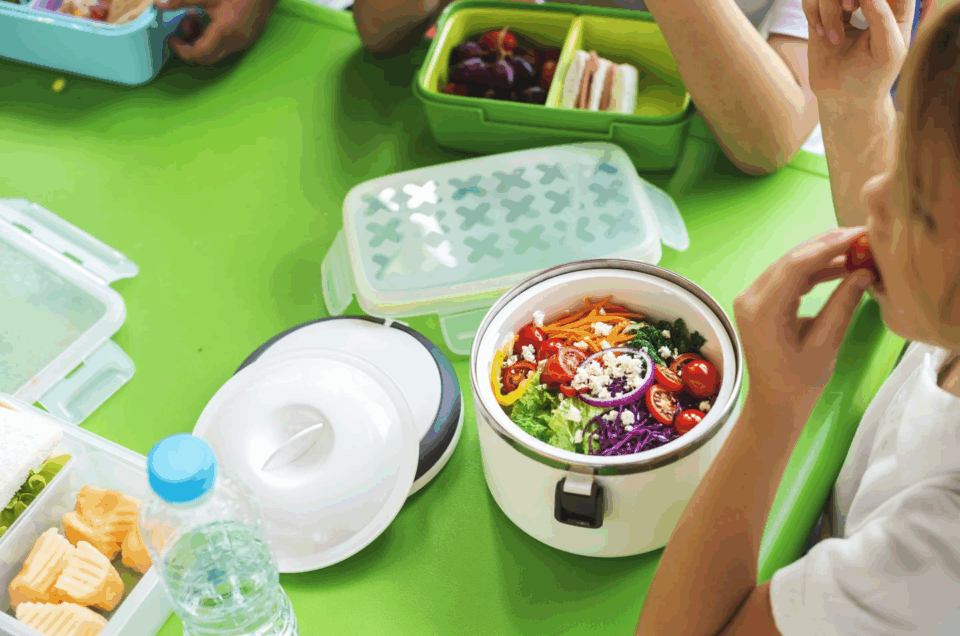Organic seeds and cultivated biodiversity are key to Europe’s food sovereignty and the future of food and agriculture

European cities gather in Granollers, Spain, to discuss how to integrate cultivated biodiversity in their food policies to boost European food resilience. Organic seeds entrepreneurship, community seed banks and organic and diverse school meals are some of the success stories that will be showcased
Policy pegs: Future of agriculture, CAP, Public food procurement, local food policies, Seed legislation, organic seed entrepreneurship.
22/04/2025 – In times of economic and geopolitical uncertainty, European municipalities are leading the way in local food policies for systemic transformation. They call on national and European leaders to support strategies that move Europe towards food sovereignty and resilience.
The Network of Municipalities for Agroecology, Granollers City Council and the LiveSeeding project have brought together city representatives, technical experts and professionals in agroecology and organic production for the 1st Symposium on “Fostering Cultivated Biodiversity through Local Food Policies” on 29-30 April 2025. Over two days, more than 100 participants will explore how municipal food policies can help build sustainable, healthy and biodiverse food systems.
Véronique Chable, Senior Scientist at INRAE (France) and LiveSeeding consortium partner summed up the symposium’s core idea: “Seeds are the foundation of food production — they are the beginning of life. To ensure resilience of European agriculture, we need seeds better adapted to changing conditions. Organic and agroecology-oriented farming systems starting from locally adapted seeds, ensure this. They require long term financial and policy support”.
The symposium marks a milestone in the commitment of European municipalities to advance food policies that integrate cultivated biodiversity across multiple sectors. One key area is public food procurement, a powerful tool for transforming food systems. “Local organic food grown with adapted biodiverse seeds can be offered in school canteens through public food procurement. That’s exactly what we’re doing in Orduña — serving healthy, diverse diets to our children. In this way we support the local economy and ensures biodiversity essential for resilience,” said Iker Santocildes Pérez, Mayor of Orduña, Spain.
Through experience-sharing and the strengthening of strategic alliances, the event aims to catalyse the agroecological transformation of local food systems. “Integrating cultivated biodiversity into local food systems is a collective effort, involving local communities . In Scandicci, we manage a community seed bank that facilitates farmers’ and gardeners’ access to seeds, working closely with municipal gardens,” explained Giuseppe De Santis, Project Manager at Rete Semi Rurali (Italy), LiveSeeding project partner.
As a key outcome, towns and cities will co-create, alongside multilevel institutions and civil society organisations, the Granollers Manifesto: Fostering Cultivated Biodiversity in European Municipalities. This manifesto will propose concrete actions and commitments to advance this agenda at both municipal and broader levels. It will serve as a roadmap for future initiatives and will be officially presented at the Global Forum of the Milan Urban Food Policy Pact in autumn 2025.
Agrobiodiversity refers to the diversity in domesticated crops, farm animals and forest trees intentionally cultivated and reared by humans for food and agriculture. For this, it is distinct from wild biodiversity. For plant crops, we speak of Cultivated Biodiversity which includes the seeds of a vast diversity of landraces, heirloom varieties, and locally adapted cultivars.
The LiveSeeding is an innovation project, funded by the EU, SERI and UKRI, which promotes the growth of organic seed and plant breeding systems to facilitate the transition to more sustainable local food systems. Its main objective is to provide high quality organic seeds and diverse varieties adapted to organic farming in a wide range of crops. to facilitate the transition to more sustainable local food systems. More info on: liveseeding.eu
The Network of Municipalities for Agroecology is an association of more than 30 local entities in the Spanish State that promotes sustainable, inclusive and territorialized food systems, from an agroecological and food sovereignty perspective. More info on: municipiosagroeco.red


















